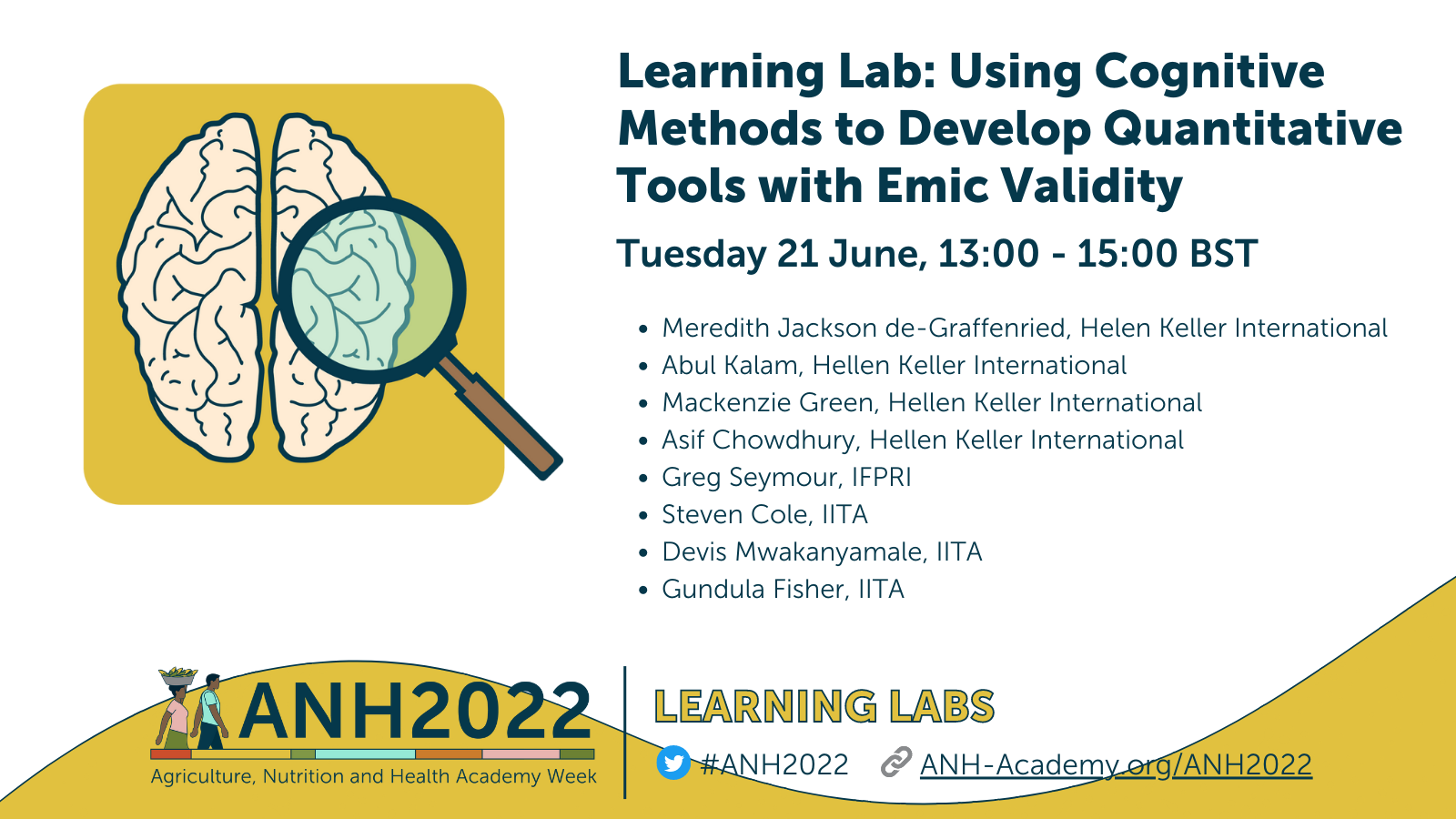
Level: Introductory
Description:
Development practitioners rely on quantitative tools to measure psychosocial constructs and normative practices such as women's empowerment and decision-making. However, these tools are developed from an outsider (etic) perspective and not defined by the people inhabiting the sociocultural context of the program (an insider or emic perspective). Qualitative methods are typically used to obtain contextualized information for program design and adaptation but are not widely used as part of monitoring and evaluation. In this Learning Lab, two tool development and data collection processes based in cognitive methodologies will be presented, discussed, and practiced: 1) cultural domain analysis of women's perceived self-efficacy and 2) cognitive mapping of intra-household decision making. Both processes use qualitative data collection methods to develop quantitative measurement tools with emic validity to measure dimensions of women's empowerment. The Learning Lab will teach participants how to conduct the two analytical processes and develop monitoring tools.



